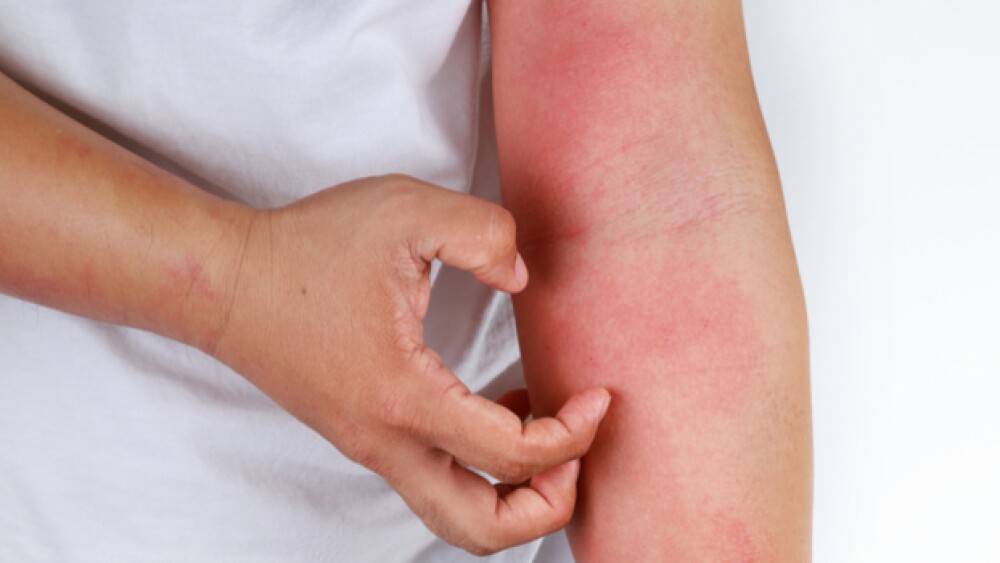Shares of Realm Therapeutics have plunged more than 50 percent this morning after the company announced its Phase II atopic dermatitis drug failed to distinguish itself from the control arm in the trial.
Shares of Realm Therapeutics have plunged more than 50 percent this morning after the company announced its Phase II atopic dermatitis drug failed to distinguish itself from the control arm in the trial.
Malvern, Penn.-based Realm said in the 122 patient mid-stage trial, PR022 showed “no difference from vehicle in the primary endpoint of percent change in Eczema Area Severity Index (EASI) versus baseline.”
Atopic Dermatitis, a serious form of eczema, is a chronic, relapsing, inflammatory disease characterized by itchy and inflamed skin. PR022 was being developed as an immunosuppressant to ease the symptoms of atopic dermatitis. A topical gel formulation of high concentration hypochlorous acid (HOCl), PR022 was associated with down-modulation of key cytokines IL-4, IL-13 and TARC, as well as cytokines associated with itch, including IL-31 and TSLP. The company has been hopeful the treatment would be preferable to the current standard of care of steroids, due to a lack of side effects seen with that treatment. It had been seen as a potential drug to contend with Pfizer’s Eucrisa (crisaborole) in the atopic dermatitis space. Another potential contender is Dupixent. Regeneron and Sanofi anticipate filing a New Drug Application for that drug as an atopic dermatitis treatment in the third quarter of this year for adolescents (aged 12-17).
Alex Martin, Realm’s chief executive officer, noted the company’s disappointment in the failed trial. He said the company “just received the data” and is analyzing it in order to “better understand the outcome.”
“We are conducting a full review to determine whether there is a path forward for our proprietary technology in Atopic Dermatitis, and to evaluate the implications for our Acne and Psoriasis programs. We will provide an update on our plans in September. I would like to thank the patients and investigators who participated in this trial,” Martin said in a statement.
This is the second mid-stage disaster Realm has gone through this year. In March, the company said its Phase II allergic conjunctivitis drug PRO13 failed to meet endpoints. Realm said it was halting further development of the PR013 program. That failure sent shares crashing as well and the stock has yet to fully recover.
In March, shares were trading at $47.50. The allergic conjunctivitis failure sent shares crashing to $34.50. The stock climbed back to $40 per share, which was the closing price on Monday. This morning though, shares have fallen to $19.92 as of 9:37 a.m.
As of the end of the first half of the year, Realm said its cash, cash equivalents and short-term investments were $23.7 million.
In addition to PR022, Realm is also developing acne treatment RLM023. Like PR022, RLM023 is a topical formulation of HOCl. Realm said it believes HOCI is a promising treatment for acne due to its anti-inflammatory and anti-microbial properties.





